|

|
The Enthusiastic Employee:
…if no one seems to care except when something goes wrong, motivation can quickly turn into resentment.
|
315 |
|
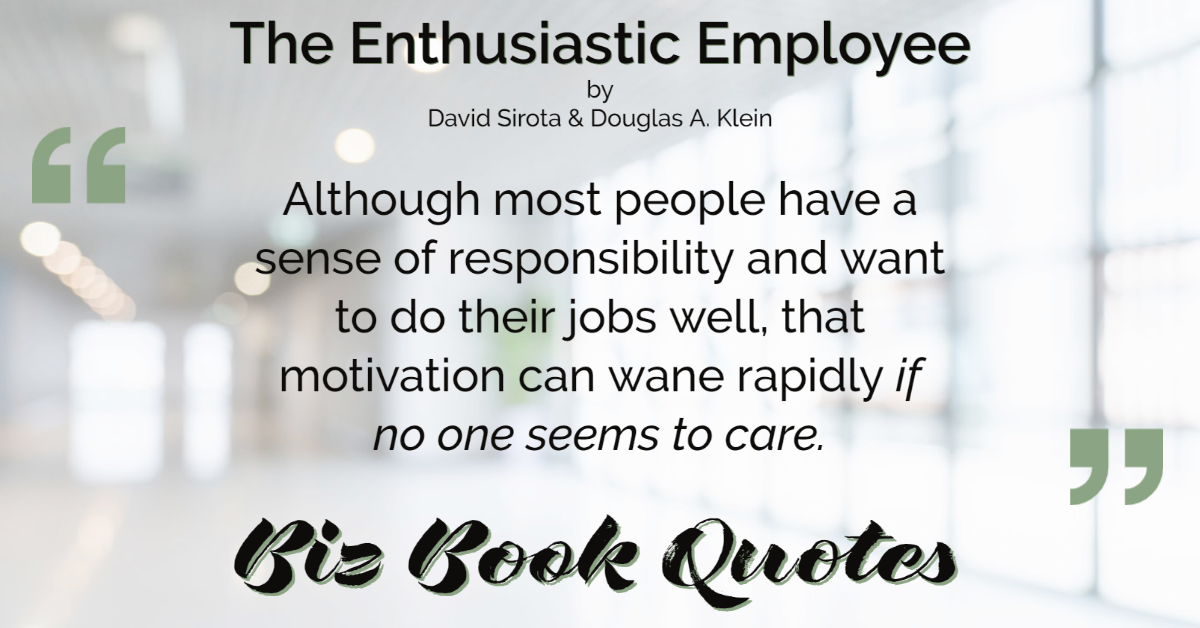
|
The Enthusiastic Employee:
Although most people have a sense of responsibility and want to do their jobs well, that motivation can wane rapidly if no one seems to care.
|
315 |
|

|
The Enthusiastic Employee:
Without feedback, there can be only a limited sense of achievement and opportunity to improve performance.
|
316 |
|
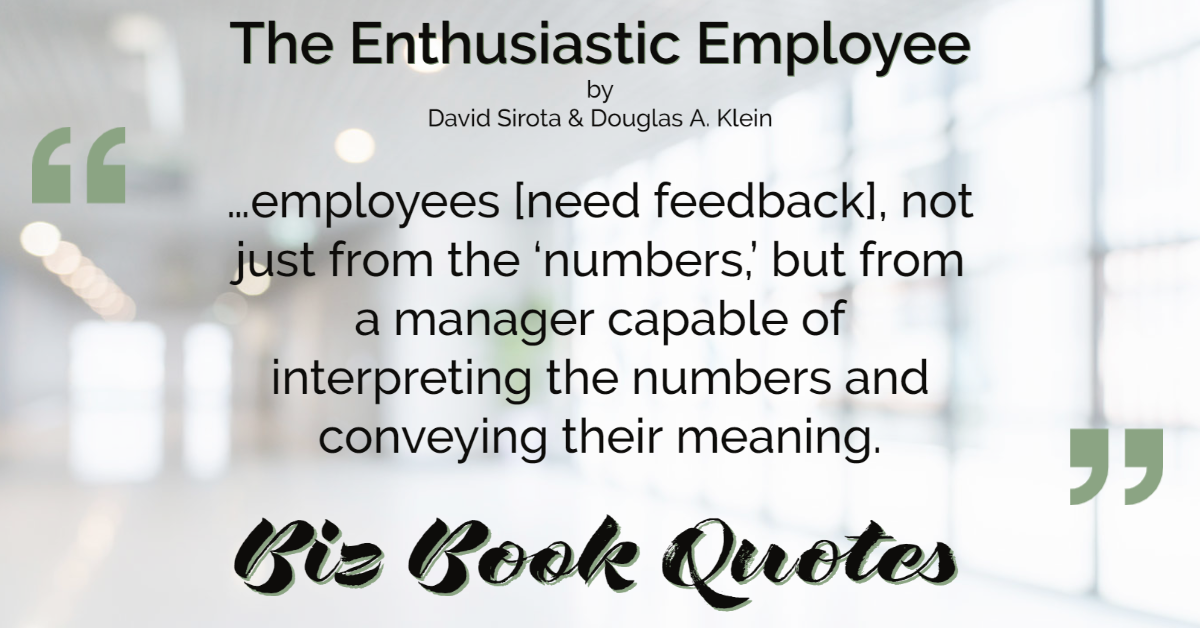
|
The Enthusiastic Employee:
…employees [need feedback], not just form the ‘numbers,’ but from a manager capable of interpreting the numbers and conveying their meaning.
|
317 |
|
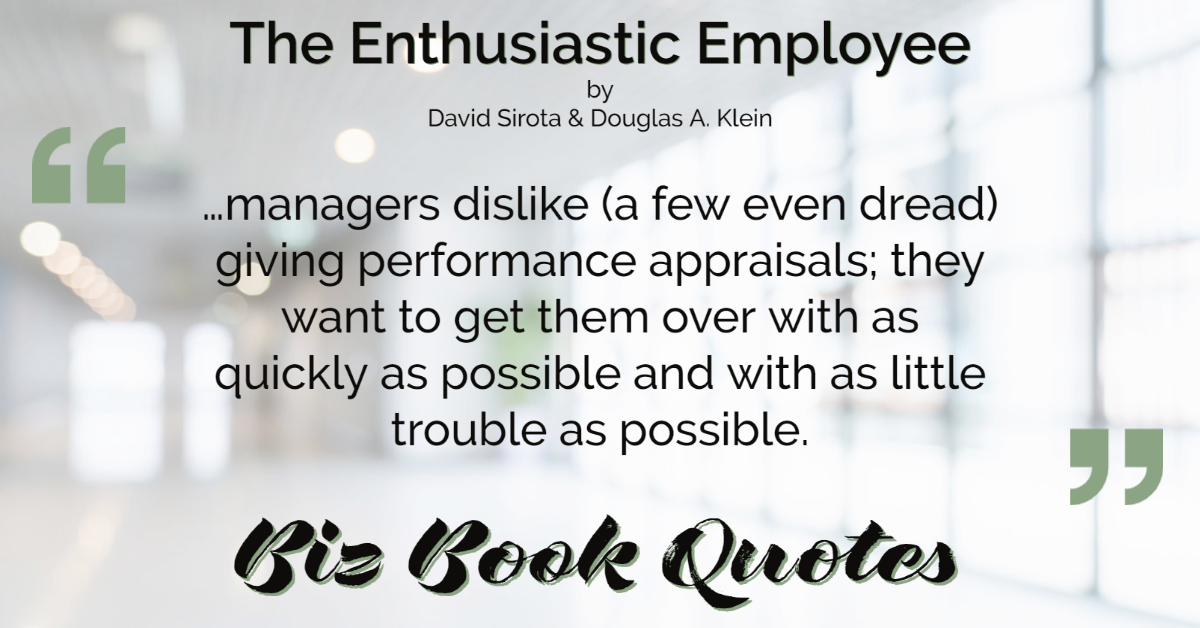
|
The Enthusiastic Employee:
…managers dislike (a few even dread) giving performance appraisals; they want to get them over with as quickly as possible and with as little trouble as possible.
|
318 |
|
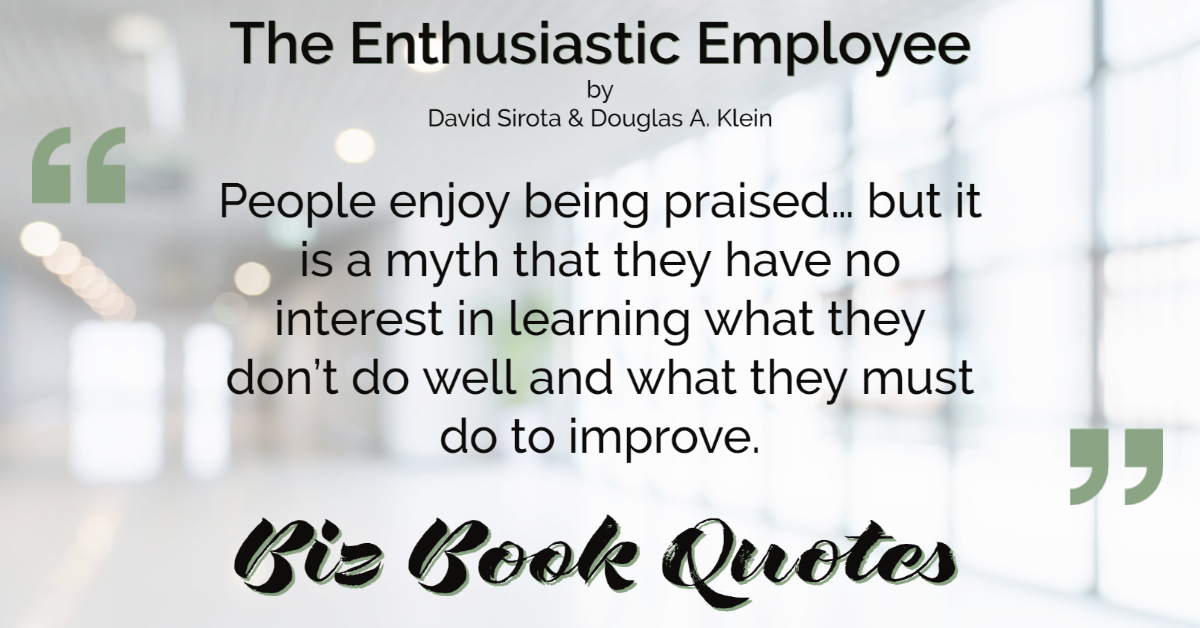
|
The Enthusiastic Employee:
People enjoy being praised… but it is a myth that they have no interest in learning what they don’t do well and what they must do to improve.
|
320 |
|

|
The Enthusiastic Employee:
Employees naturally want to know how they can do their jobs better because improvement will give them a greater sense of achievement and pride.
|
321 |
|
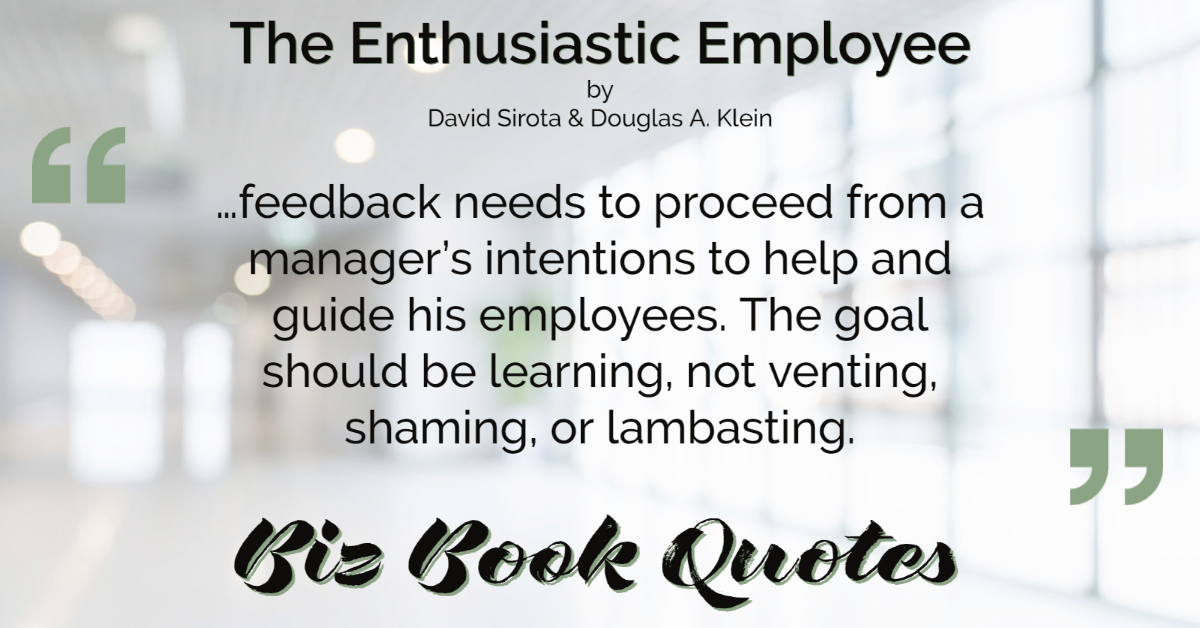
|
The Enthusiastic Employee:
…feedback needs to proceed from a manager’s intentions to help and guide his employees. The goal should be learning, not venting, shaming, or lambasting.
|
323 |
|
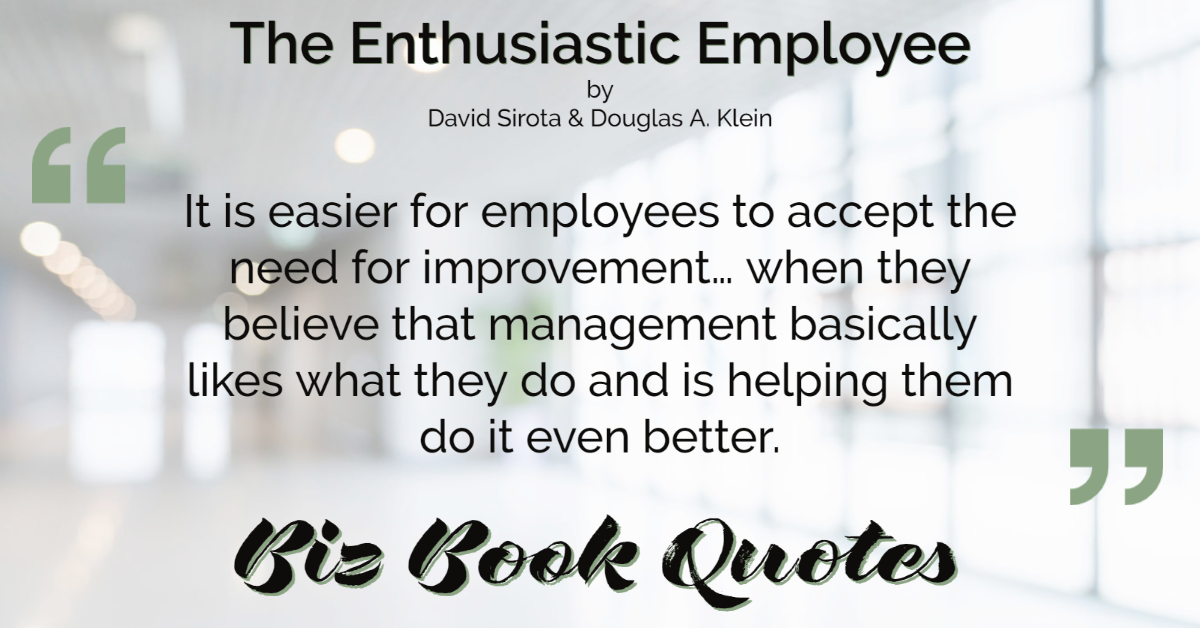
|
The Enthusiastic Employee:
It is easier for employees to accept the need for improvement… when they believe that management basically likes what they do and is helping them do it even better.
|
324 |
|

|
The Enthusiastic Employee:
Being specific in your praise diminishes the feeling that the praise is given for effect (a sort of public-relations gesture)…
|
324 |











